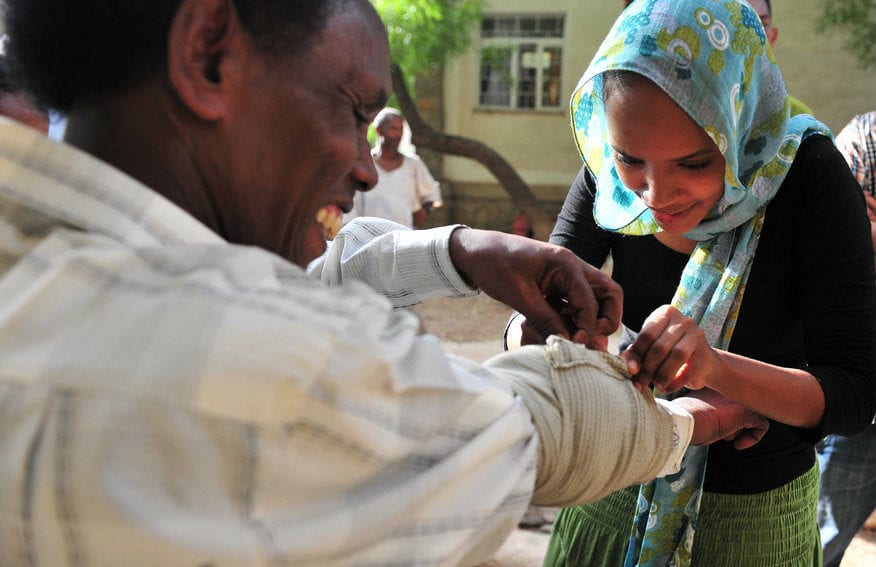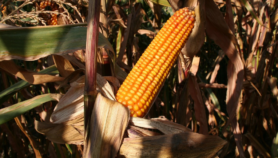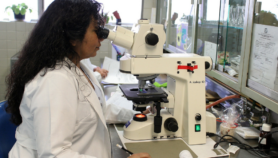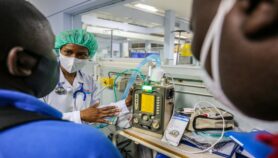By: Gilbert Nakweya
Send to a friend
The details you provide on this page will not be used to send unsolicited email, and will not be sold to a 3rd party. See privacy policy.
[NAIROBI] An injectable product made from bone growth proteins for treating bone injuries has won the 2014 Innovation Prize for Africa (IPA).
South African scientists Nicolaas Duneas and Nuno Peres — who created the Altis Osteogenic Bone Matrix (OBM) — say the product is “the world’s first injectable regenerating bone graft substitute” derived from pig.
The award was announced this month (5 May) in a ceremony in Abuja, Nigeria, hosted by the Africa Innovation Foundation in partnership with the Federal Government of Nigeria.
The product heals a fracture or bone void by stimulating a host’s own tissue regeneration system, according to Duneas and Peres, who are the founders of the Atlis Biologics in South Africa, a company that researches, develops and markets medicinal products for bones and other tissues.
“We shall continue to accelerate the adoption of the technology to the rest of Africa now.”
Nuno Peres, Atlis Biologics in South Africa
The winners were selected from 700 applications from 42 countries in Africa.
According to Peres, the injection of OBM leads to speedy, safe and effective healing of bone injuries, leading to the complete and natural restoration of the bone, including the bone marrow.
He adds that about 14 million Africans annually people suffer from bone injuries and this inspired their innovation. “It is a great honour for us and this prize will motivate scientific and technological advancements in Africa,” Peres says. “We shall continue to accelerate the adoption of the technology to the rest of Africa now.”
Duneas and Peres received US$100,000 for their innovation.
Pauline Mujawamariya, the director of IPA, says that the winners have attracted investments due to the exposure created through IPA and that the other scientists were able to scale up their innovations.
“For example, the last year's winner, AgriProtein team, attracted requests for business from more than 40 countries after winning the prize and just signed a contract worth US$8 million with Australia’s Twynam Group, Mujawamariya tells SciDev.Net.
Mujawamariya says the future for innovation in Africa looks bright although more still needs to be done. IPA has been able to showcase the inspiring innovation stories, she adds
Ligou Minsob, a runner-up from Togo was given US$25,000 for creating a food processor called Foufou Mix. The innovation is used to prepare Foufou — a popular West African dish — without using mortar and pestle to pound the food, thus simplifying the arduous task.
Another runner-up Melesse Temesgen, an assistant professor at the School of Civil and Environmental Engineering, Addis Ababa University, Ethiopia, was awarded US$25,000 for creating Aybar Broad-based Furrow Maker, a low-cost farming device that could improve food production by helping drain excess water from waterlogged land.
Winners were chosen based on the marketability, originality, scalability, social impact and business potential of their innovations, according to Mujawamariya.
The Switzerland-based African Innovation Foundation founded IPA in 2011 to promote innovation for Africa by Africans, mobilising various stakeholders to collaborate to help strengthen African innovation systems.
Wanjiru Kamau-Rutenberg, the director of African Women in Agricultural Research and Development (AWARD) says the Innovation Prize for Africa plays an important role in stimulating economic growth.” By recognising innovators, it inspires all Africans to rise up ambitiously with their own contributions to the continent's prosperity,” Wanjiru tells SciDev.Net.
“The prize reminds us that contrary to the tired old narrative of Africa as a dark continent, we are at an important moment in history where innovation and entrepreneurship are truly African qualities and characteristics.”
This article has been produced by SciDev.Net's Sub-Saharan Africa desk.














